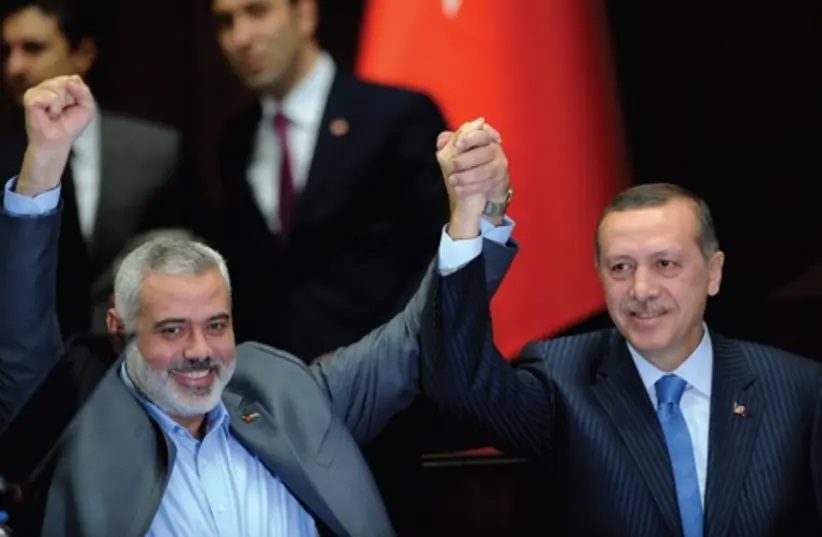
PEJOURNAL – Recently, the Zionist newspaper Yedioth Ahronoth, in a report referring to the statements of an Israeli diplomat, claimed that the Zionist regime resumed its relations with Turkey conditionally, including the closure of the Hamas office in Istanbul and the cessation of exchanged prisoners from military branch of this movement.
The daily quotes former regime ambassador to Sofia, Bulgaria, Erit Lillian, as the new ambassador to Ankara, citing Tel Aviv’s goodwill message to increase diplomatic consultations and assess the Erdogan government’s sincerity and determination to enter the stage for new collaboration.
The claim has yet to be met with a backlash from Ankara, as the Sunni Hamas movement, the Palestinian branch of the Muslim Brotherhood, is a brotherhood for the AKP in Turkey.
A review of Turkey’s regional actions in recent years clearly reveals the ruling party’s Brotherhood bias, to the point that many regional experts attribute Ankara’s differences with the Syrian Ba’ath Party and Bashar al-Assad himself as a result of Hafez al-Assad’s confrontation with the Syrian Brotherhood.
Even Turkey’s positive interactions with Qatar and its negative stance towards the UAE, Saudi Arabia and Egypt before and after Mohamed Morsi are attributed to the same Brotherhood tendencies of the ruling party in Turkey.
As for the Hamas Brotherhood movement, it is said that Turkey assured Ismail Haniyeh, the Chief of Hamas’s Political Bureau, that he would react negatively to the US and European call for Hamas a terrorist organization in Istanbul this summer and also resists Western pressure to expel Hamas from Turkey.
Now, however, Turkey seems to have decided to soften the atmosphere once again with Zionist regime due to the changing international situation, especially after the defeat of Trump and Biden’s victory, despite the seemingly strong reactions to the establishment of some Arab relations with Israel.
In this regard, the information released to “NOURNEWS” indicates that the Turkish government has shown its desire to resume relations with Israel in various ways during this period, and in addition to welcoming the announcement of Ilham Aliyev’s readiness for mediation, a secret path by Hakan Fidan, the head of National Intelligence Organization (MIT), has been in talks with Zionist officials, including Mossad chief Yossi Cohen.
The important point is that in the previous cases of establishing relations with the Arabs, it was Tel Aviv that showed its enthusiasm and accepted the Arab conditions, but in the case of Turkey, despite Ankara’s desire, it was Tel Aviv that set the preconditions for the closure of Hamas offices.
In this situation, it remains to be seen whether Turkey will, as in the past, transcend ideological beliefs to pursue political approaches and sacrifice the ideals of the Muslim Brotherhood, or change the wrong path it has been following for years.